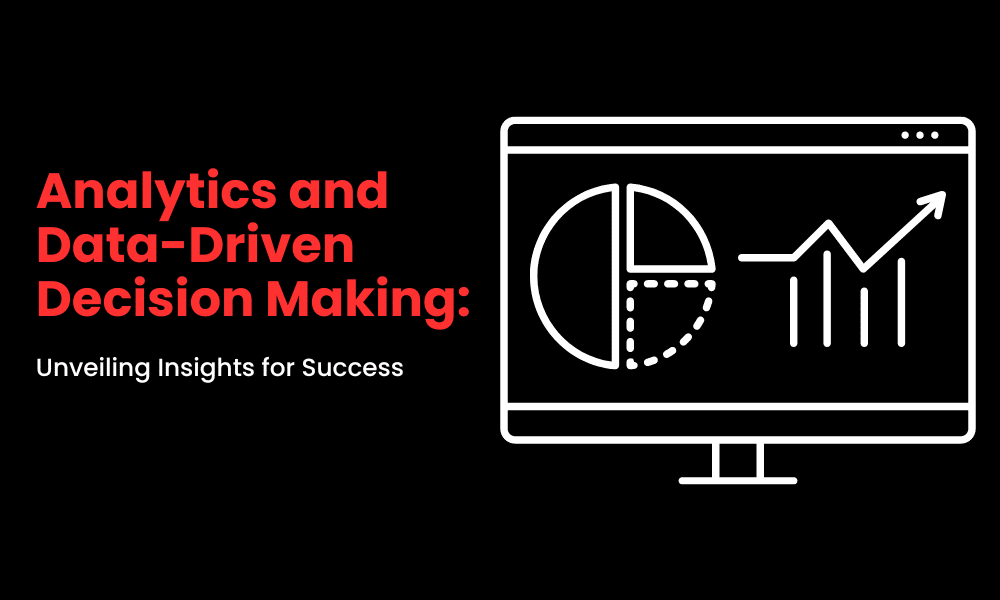In today’s data-rich digital landscape, businesses have access to an unprecedented amount of information about their customers, operations, and market dynamics. However, harnessing this wealth of data and transforming it into actionable insights requires more than just collecting raw numbers – it demands a strategic approach to analytics and data-driven decision making. In this article, we’ll delve into the significance of analytics, backed by insightful statistics and strategies for leveraging data to drive success.
The Significance of Analytics
Analytics serves as the bedrock of informed decision making, enabling businesses to gain valuable insights into their performance, identify trends, and uncover opportunities for optimization and growth. Whether it’s analysing customer behavior, measuring marketing effectiveness, or optimising operational processes, analytics empowers businesses to make data-driven decisions that drive tangible results.
Key Insights and Statistics:
- Business Impact: According to a report by McKinsey & Company, companies in the top quartile of analytics adoption are 2.6 times more likely to be in the top quartile of financial performance within their industry.
- Competitive Advantage: Research by MIT Sloan Management Review found that organisations that excel at analytics are more likely to outperform their competitors in terms of profitability, growth, and customer satisfaction.
- Customer Experience: A study by Forbes Insights and EY revealed that 58% of executives believe that analytics has a significant impact on improving customer experiences and satisfaction.
Strategies for Data-Driven Decision Making
To unlock the full potential of analytics, businesses must adopt strategic approaches that enable them to derive actionable insights from their data. Here are some key strategies for leveraging analytics effectively:
- Define Clear Objectives: Start by defining clear business objectives and key performance indicators (KPIs) that align with your strategic goals. This will provide clarity on what metrics to track and measure to gauge success.
- Invest in the Right Tools: Choose analytics tools and platforms that align with your business needs and objectives. Whether it’s web analytics, customer relationship management (CRM) software, or business intelligence (BI) platforms, investing in the right tools is crucial for effective data analysis.
- Data Quality and Governance: Ensure that your data is accurate, reliable, and consistent. Implement robust data governance practices to maintain data integrity and security, and establish protocols for data collection, storage, and usage.
- Advanced Analytics Techniques: Explore advanced analytics techniques such as predictive modeling, machine learning, and data visualisation to uncover deeper insights and predictive trends from your data.
Key Insights and Statistics:
- Data Literacy: A survey by Qlik found that only 24% of employees feel confident in their ability to read, work with, analyze, and argue with data, highlighting the importance of investing in data literacy training for employees.
- Real-Time Analytics: According to a report by Harvard Business Review Analytic Services, 89% of executives believe that real-time analytics is crucial for driving better business decisions and improving operational efficiency.
- Personalisation: Research by Accenture found that 91% of consumers are more likely to shop with brands that provide relevant offers and recommendations, highlighting the importance of leveraging analytics for personalised marketing.
Embracing a Data-Driven Culture
In conclusion, analytics is a powerful tool for driving business success in today’s data-driven world. By adopting strategic approaches to data analysis and decision making, businesses can unlock valuable insights, optimise performance, and gain a competitive edge in their industry. From defining clear objectives and investing in the right tools to embracing advanced analytics techniques and fostering a data-driven culture, the path to success lies in leveraging analytics to inform and guide strategic decision making at every level of the organisation. As businesses continue to navigate an increasingly complex and competitive landscape, those that embrace analytics as a strategic imperative will be poised to thrive and succeed in the long run.




Leave a reply